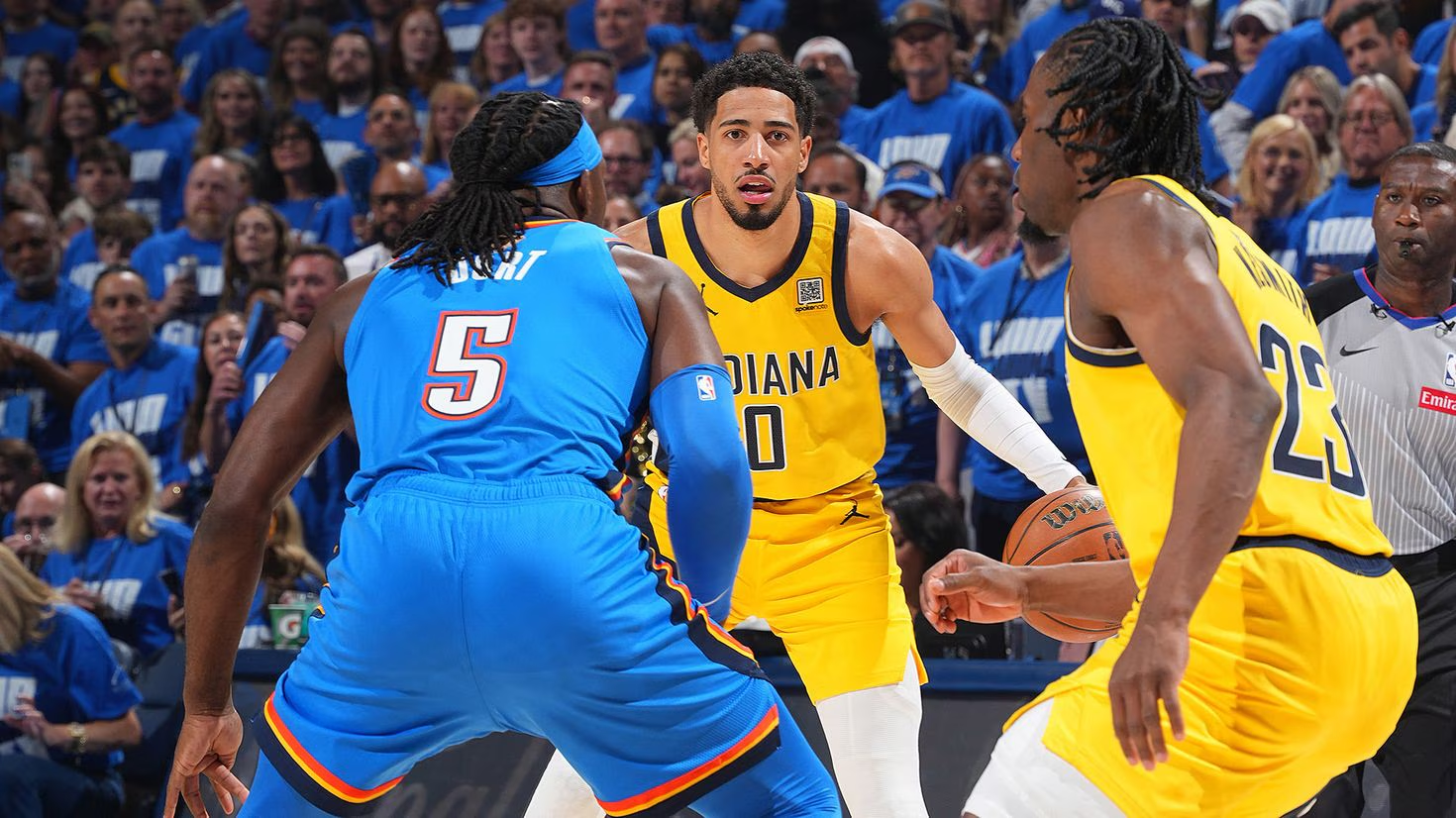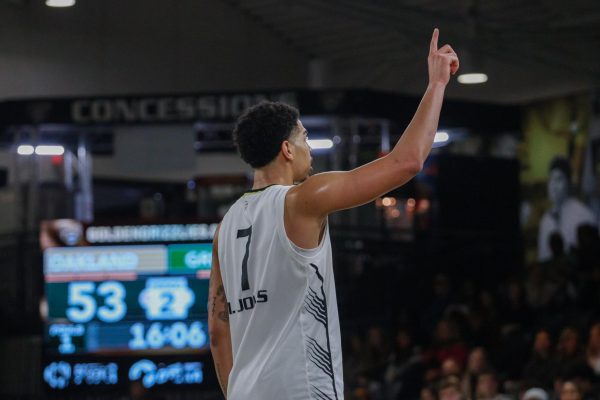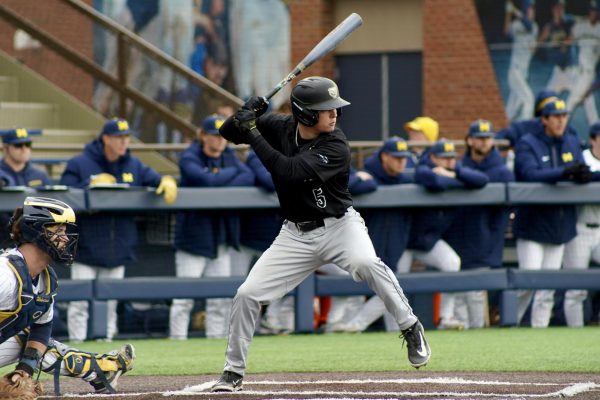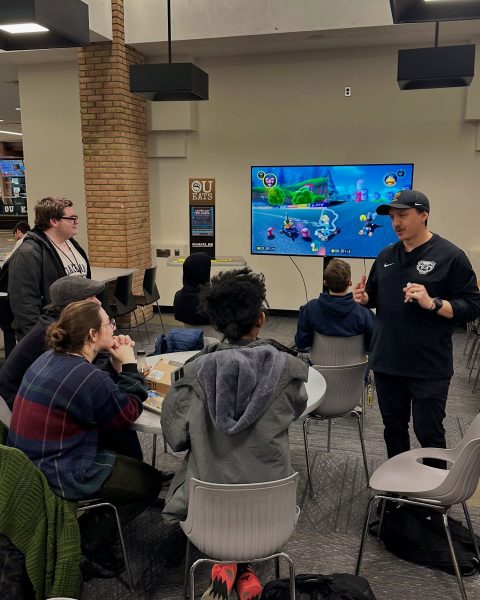Moving upward
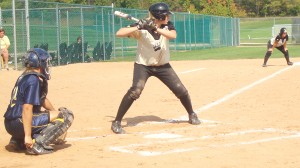
Last summer, the doctors told the father of senior and varsity Softball player Kylie Schalz that his daughter would never walk again.
Today, Schalz talks about being back on the Oakland Softball field by next year.
“I have really bad scoliosis which is a curvature of the spine,” Schalz said. “I found out I had it in grade school. I had to wear a back brace in grade school and the beginning of high school.”
Schalz spent half her athletic career knowing she would eventually have to get surgery on her spine. The only question was when.
“I knew by senior year of high school I would eventually need surgery,” Schalz said. “We were just trying to prolong it until after college softball.”
Schalz’s plan changed after her junior year of college, however.
Surgical support
“We did a lot of lifting my junior year and the curve in my back got 17 degrees worse,” Schalz said. “I had to be put in emergency surgery to get rods put in my back fused to my spine.”
Schalz went in for surgery last June.
If the surgery had gone correctly, the recovery was supposed to take a few months. Due to the medical complication, Schalz would have a far longer and difficult recovery.
“When I was out of the surgery I couldn’t move or feel anything from the (mid-chest) down,” Schalz said. “I didn’t move or feel anything for three to four weeks.
Recovery was a very slow process for Schalz. She spent the summer at the Rehabilitation Center of Chicago.
“My surgeon would come in every day and visit me,” she said. He would open a paperclip and poke me to see if I could feel it. He would be breaking skin and I couldn’t feel it. Finally I started little by little feeling certain places. I started wiggling my toes and moving my knee a millimeter.”
Teammate Colleen Zimmerman came to visit Schalz in the hospital.
“Watching what she had gone through with the surgery was very difficult for me at first, but I was right there by her side shortly after it happened,” Zimmerman said. “We had a lot of fun pushing her around downtown Chicago. At that time she had no feeling from her armpits down … she has made so much progress since then.”
Despite the long struggle, Schalz refused to be discouraged.
“I always had that attitude where I thought this wasn’t going to stop me,” Schalz said. “I’m only 21-years-old. I have a long life ahead of me.”
Schalz has had a lot of support from teammates and coaches through this long recovery process.
“I talked to my coach right when it happened,” she said. “She told me the team was here for me and would do whatever it takes to get me better. Todd (Wolfiem) had been helping me a lot in the weight room. He does my therapy three days a week and Brianna (Moyer) does it two days.”
For therapy, Schalz must do full-body exercises, as well as core and cardio to regain strength.
“She is exceeding where I thought she would be at this point in time,” athletic trainer Brianna Moyer said. “She is not even a year out of her surgery and she is walking. She is hitting off a tee right now.”
Increasing inspiration
The softball team was deeply shaken when they first heard about Schalz’s surgery.
“When they found out what had happened to me after they were all devastated,” Schalz said. “My whole team has been so supportive. They have been pushing me and in a way I think I’ve been pushing them.”
Schalz has become a model of strength for her friends and teammates, though.
“She has taught me a lot about life. It is too short — no matter what you are going through if you believe and trust in yourself you can do anything,” Zimmerman said. “She has also taught me to cherish everything, because you never know what can happen tomorrow.”
Schalz’s personality and character has conditioned her to overcome this challenge with strength.
“Kylie is one of those people who is so driven it is insane,” teammate Danielle Dulberg said. “I have faith that she will continue to progress because she is so motivated to succeed and she is someone that I truly look up to.”
Schalz has no remorse over her surgery. She views it as an learning experience that has effected her career plans.
“After being in a wheelchair for a few months, it makes you realize what needs to be changed in the disability world,” Schalz said. “I think I would be a perfect candidate to design stuff because I have been on both sides.”
“The best part has been the people I’ve met and the stories I’ve heard,” Schalz said. “People have said to me ‘you are so inspiring’ I’m not trying to be inspiring; I’m just trying to get better. The fact that it has affected other people makes me feel great.”
—-Contact staff reporter Emma Claucherty via email at [email protected]



